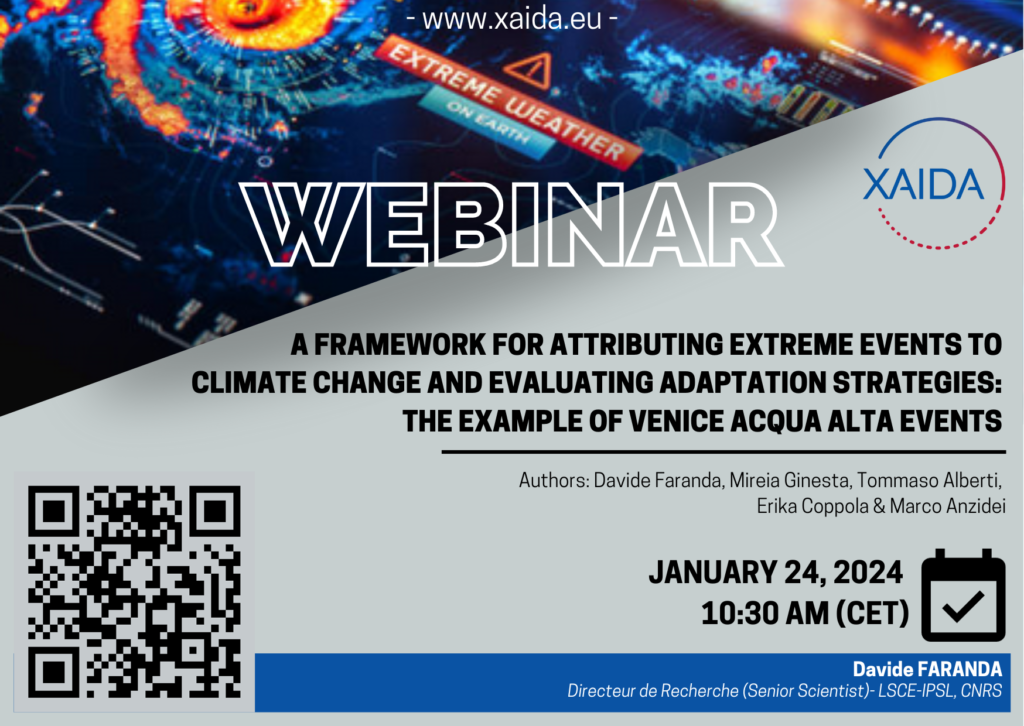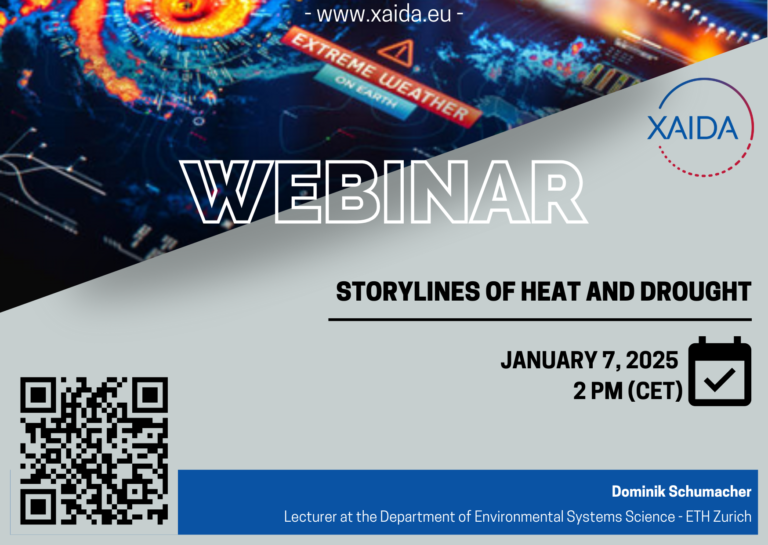XAIDA WEBINARS | A framework for attributing extreme events to climate change and evaluating adaptation strategies: the example of Venice Acqua Alta events
XAIDA is now hosting an open monthly webinar. Within the XAIDA project, sixteen research institutes and climate risk practitioners, aim to develop and apply novel artificial intelligence methods to better assess and predict the influence of climate change on extreme weather. Join the webinar each month to dive into interesting topics such as machine learning for climate extremes, the societal impact of extremes, and education about climate change.
Coordination: Maria Gonzalez-Calabuig (Univ. València), Oana-Iulia Popescu (DLR), Manon Rousselle (IPSL)
January 24th at 10:30AM (CET)
Titre: A framework for attributing extreme events to climate change and evaluating adaptation strategies: the example of Venice Acqua Alta events
Abstract: We use analogues of atmospheric patterns to investigate changes in four devastating Acqua Alta (flooding) events in the lagoon of Venice associated with intense Mediterranean cyclones occurred in 1966, 2008, 2018 and 2019. Our results provide evidence that changes in atmospheric circulation, although not necessarily only anthropogenically driven, are linked to the severity of these events. We also evaluate the cost and benefit of the MoSE system, which was designed to protect against flooding. Our analysis shows that the MoSE has already provided protection against analogues of the most extreme event, which occurred in 1966. These findings have significant implications for the future of Venice and other coastal cities facing similar challenges from rising sea levels due to extreme events. This study also provides a pathway to evaluate the effectiveness of adaptation in a scenario more frequent and intense extreme events if higher global warming levels will be reached.
Reference: Faranda et al. Attributing Venice Acqua Alta events to a changing climate and evaluating the efficacy of MoSE adaptation strategy. npj Clim Atmos Sci 6, 181 (2023). https://doi.org/10.1038/s41612-023-00513-0







